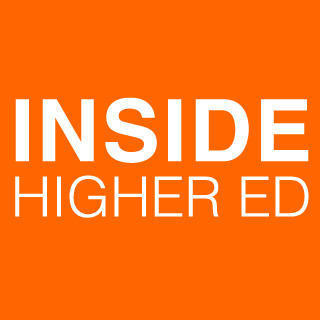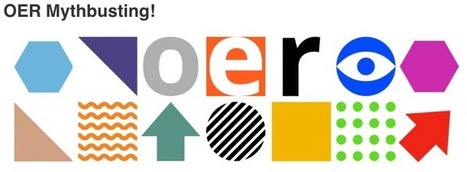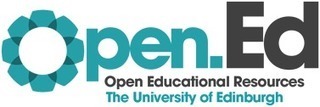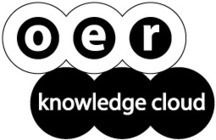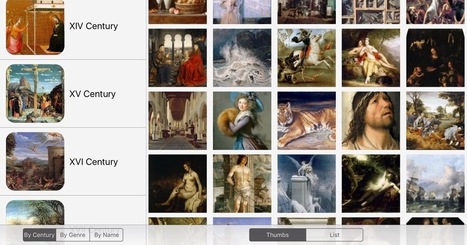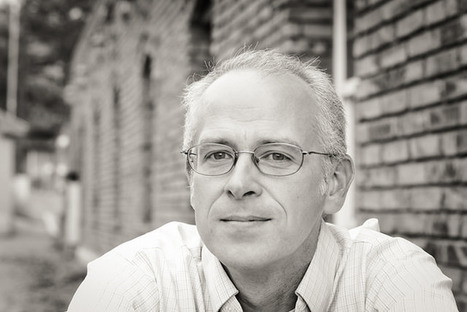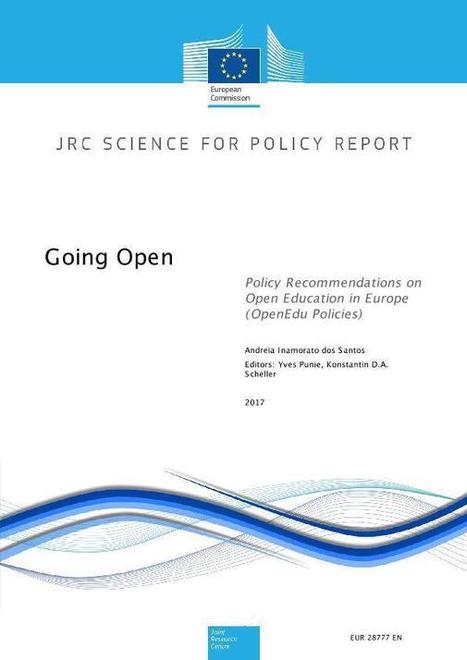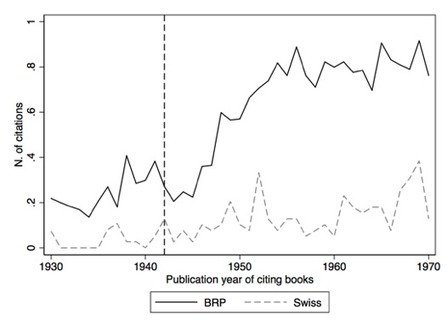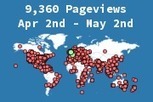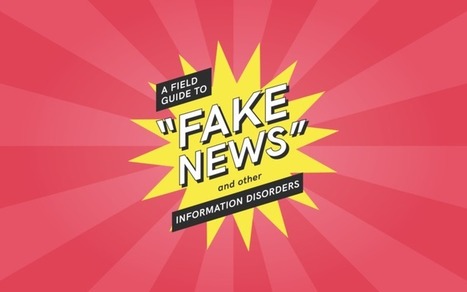 Your new post is loading...
 Your new post is loading...
A new search engine that aims to connect nonacademics with open-access research will be launched this fall. Get the Research will connect the public with 20 million open-access scholarly articles. The site will be built by Impactstory -- the nonprofit behind browser extension tool Unpaywall -- in conjunction with the Internet Archive and the British Library. Funded by a $850,000 grant from Arcadia, the search engine will be a place where “we can tell lay readers, ‘here’s where you can read free, trustworthy research about anything,’” said Jason Priem, Impactstory's co-founder. He added that artificial intelligence techniques will be used to annotate and summarize materials, making them easier to understand.
Amsterdam has many pleasures to offer, not least boating through its hundred-kilometer network of canals. First laid out in the early 17th century, they constitute a rich history lesson in and of themselves. But Amsterdam is also, of course, a modern city with modern infrastructure, such as a metro system with a new line set to open this month.
How is a textbook developed as an open educational resource and how should open educational resources be promoted? In this interview, Dr Maximilian Heimstädt reports on his experiences in the production of the OER textbook `Organising Openness´ on the one hand, and on his research findings regarding the organisation of openness and the promotion of open science on the other.
CORE, a global aggregator of full text open access scientific content from repositories and journals, has been growing at a fast pace over the last few months. As of May 2018, CORE has aggregated over 131 million article metadata records, 93 million abstracts, 11 million hosted and validated full texts and over 78 million direct links to research papers hosted on other websites. Our dataset of full text papers has reached 49TB. CORE is a jointly run service between the Open University and Jisc.
"Open Educational Resources are teaching, learning, and research resources released under an open license that permits their free use and repurposing by others. OERs can be full courses, course materials, lesson plans, open textbooks, learning objects, videos, games, tests, software, or any other tool, material, or technique that supports access to knowledge.
Innovating with Open Knowledge is a series of resources and case studies created by the University of Edinburgh that will help you develop the knowledge and skills to find and access free content, data and research produced by the university sector.
he term open education has recently been used to refer to topics such as Open Educational Resources (OERs) and Massive Open Online Courses (MOOCs). Historically its roots lie in civil approaches to education and open universities, but this research is rarely referenced or acknowledged in current interpretations. In this article the antecedents of the modern open educational movement are examined, as the basis for connecting the various strands of research. Using a citation analysis method the key references are extracted and their relationships mapped.
A conversation between Stephen Downes and David Wiley on the subject of open educational resources.
Topics covered include:
• What are OERs and Why do we want Them? What's Our Objective Here?
• Providing Learning vs Supporting Learning
• Perspectives on OERs: Users and Producers
• OERs Created by Providers vs. Created by Community
Sharing Practices, Building Community
WELCOME TO THE OPEN PEDAGOGY NOTEBOOK This website is designed to serve as a resource for educators interested in learning more about Open Pedagogy. We invite you to browse through the examples, which include both classroom-tested practices and budding ideas, and to consider contributing examples of your own experiments with open pedagogy.
The popular Louvre HD app is free today and only for a limited period of time. The app provides you access to a huge library of some of the most popular works of art and paintings stored in the Louvre museum . After I downloaded the app this morning I spent sometime browsing through the collections there and found them really amazing. If you love modern art, this app is definitely for you.
2018 marks the 20th anniversary of open content. I’ll be writing a range of essays this year reflecting on two decades of work toward opening the core intellectual infrastructure of education (textbooks and other educational materials, assessments, and outcomes / objectives / competency statements) in order to increase access to and improve the effectiveness of education. This post, written as part of my agreement to keynote #OER18 later this spring, provides some historical context for the emergence of open content.
I don’t make any claim to objectivity here – this history is written wholly from my personal point of view. You may have seen it differently. That is the nature of history.
To ensure the full benefits of open access (OA) research are realised, it must be made easy to find and use. But simply placing research outputs in an institutional repository is not enough.
You can take steps to raise the visibility of your institution’s repository and help ensure users can find and use relevant content.
Open education is an increasingly important part of how educational institutions deliver their public mission and commit to increased quality and more effective education, and it is also a potential means of achieving social inclusion and equal opportunities. Open educational practices provide paths for educational institutions to be more accountable to society, they modernise education by embracing the use of digital technologies, and they also promote transparent strategies. Going open is a process for all involved: institutions, learners and society. It depends on creating both digital and non-digital opportunities to make education more collaborative, more transparent and more inclusive.
|
Open science is about increasing the re-use of research, and making sure that publicly funded research is accessible to all. It sounds straightforward, but there are some issues that we need to iron out first, and this is where FAIR comes in.
Latest in the EDUCAUSE "7 Things" series is 7 Things You Should Know About Open Education: Content. Just 2 pages long it addresses the questions (those are the "things") 1. What is it? (This starts "Open educational resources (OER) are teaching, learning, and research materials in any medium that reside in the public domain or that have been released under an open license that permits no-cost access, use, adaptation, and redistribution by others.") 2 How does it work? 3 Who’s doing it? (Giving examples of repositories and use: I think all the examples are North American) 4 Why is it significant? 5 What are the downsides? 6 Where is it going? 7 What are the implications for teaching and learning? Download (open access) from https://library.educause.edu/resources/2018/6/7-things-you-should-know-about-open-education-content?
Learn how to use free, open source tools like Open Access Button and Unpaywall to find and share open access content.
Research data and publications, learning and teaching materials and software are all increasingly 'open', but what does this really mean, and where could it lead?
This report looks at the opportunities that working in the open creates, summarises support from Jisc in this area, and suggests three big ideas for what we could do the future.
In the report we look at the areas of research and education that are being transformed by open practices, and explain key concepts around licensing of publications, educational resources, data and software. We also look at some examples of where open approaches have been particularly successful, and consider the implications for institutions of moving to a culture where open practices are the default mode of operation.
Copyrights grant publishers exclusive rights to content for almost a century. In science, this can involve substantial social costs by limiting who can access existing research. This column uses a unique WWII-era programme in the US, which allowed US publishers to reprint exact copies of German-owned science books, to explore how copyrights affect follow-on science. This artificial removal of copyright barriers led to a 25% decline in prices, and a 67% increase in citations. These results suggest that restrictive copyright policies slow down the progress of science considerably.
Conceptualisations of open educational practices (OEP) vary widely, ranging from those centred primarily on the creation and use of open educational resources (OER) to broader definitions of OEP, inclusive of but not necessarily focused on OER. The latter, referred to in this paper as expansive definitions of OEP, encompass open content but also allow for multiple entry points to, and avenues of, openness. This paper explores the theoretical and empirical literature to outline how the concept of OEP has evolved historically. The paper aims to provide a useful synthesis of OEP literature for education researchers and practitioners.
It’s often said that history is written by the winners. At this year’s OER18 conference all the keynotes took had a touch of history about them. Lorna Campbell got the conference off to a great start with her long view of changing perspectives on OER. Momodou Sallah inspired everyone with his pedagogies of disruption, infectious activism and counter narratives, particularly around the history of access and control over and to, education and culture in Africa. In the final keynote, David Wiley took us through his potted history of open, open source, learning objects.
A group of fourteen authors came together in February 2018 at the TIB (German National Library of Science and Technology) in Hannover to create an open, living handbook on Open Science training. High-quality trainings are fundamental when aiming at a cultural change towards the implementation of Open Science principles. Teaching resources provide great support for Open Science instructors and trainers. The Open Science training handbook will be a key resource and a first step towards developing Open Access and Open Science curricula and andragogies. Supporting and connecting an emerging Open Science community that wishes to pass on their knowledge as multipliers, the handbook will enrich training activities and unlock the community’s full potential.
Although many societies and associations offer hybrid options within their journals, launching a fully open access journal, or “flipping” an existing journal to fully open access, presents an organization with questions, challenges, and opportunities. The breadth of the decisions to be made cover a wide range of activities from editorial selectiveness to pricing models to process and technology choices, and more.
In a series of insightful descriptions, Contact North | Contact Nord Research Associate Rory McGreal highlights the expanding and diverse applications of OER in post-secondary institutions around the world.
The thirteen examples provide insights into multiple facets of OER development, use and impact:
Use of OER for teaching and learning;
Integration of OER into programs and courses;
Development of OER by individual faculty, as well as teams;
A
Strategies to involve faculty in the development and use of OER;
Benefits of OER for student learning and faculty effectiveness; and
Organizational change resulting from the integration of OER.
Last week saw the launch of A Field Guide to “Fake News” and Other Information Disorders, a new free and open access resource to help students, journalists and researchers investigate misleading content, memes, trolling and other phenomena associated with recent debates around “fake news”.
The field guide responds to an increasing demand for understanding the interplay between digital platforms, misleading information, propaganda and viral content practices, and their influence on politics and public life in democratic societies.
Over the past three weeks we have been sharing via Twitter our top 10 open access journal articles for 2017. The methodology and selection criteria we used to identify these 10 articles were described in a previous blog post earlier in the month. For convenience and for those who missed the individual Twitter posts this follow up blog post provides relevant links and descriptions for all 10 articles.
|

 Your new post is loading...
Your new post is loading...
 Your new post is loading...
Your new post is loading...




